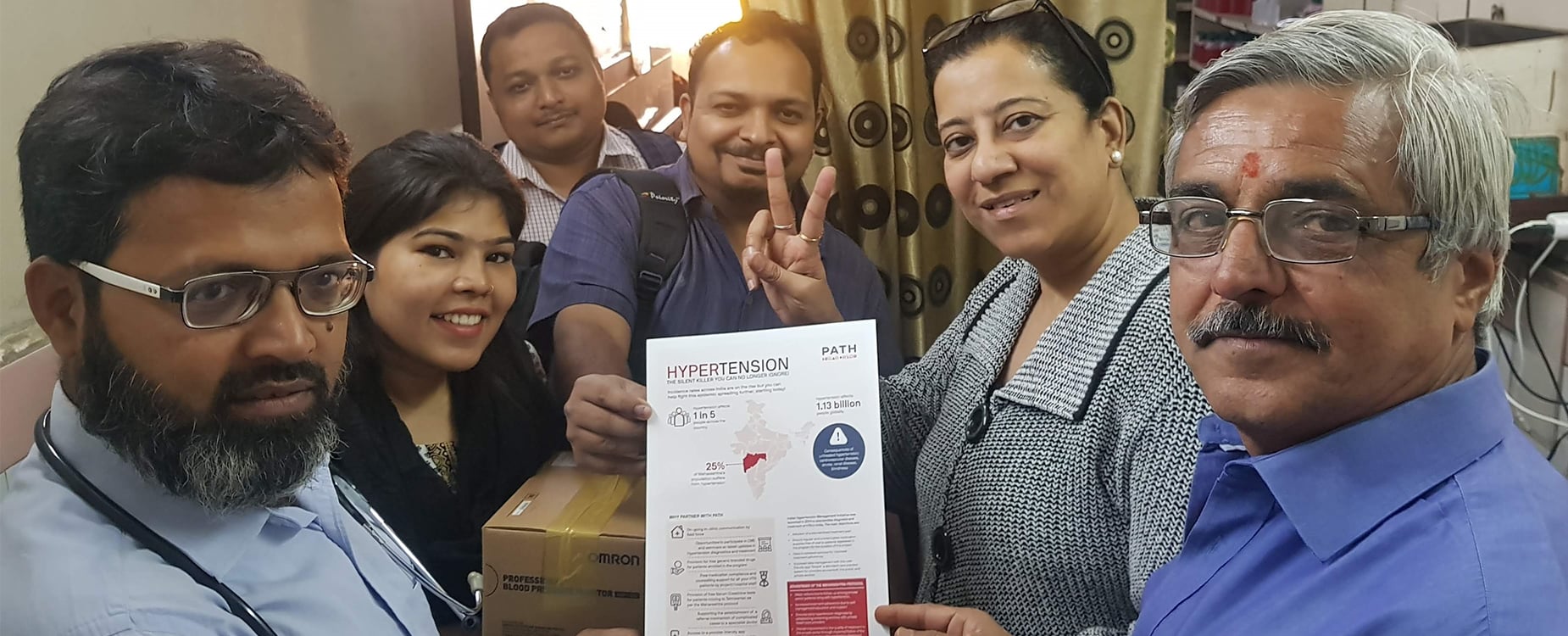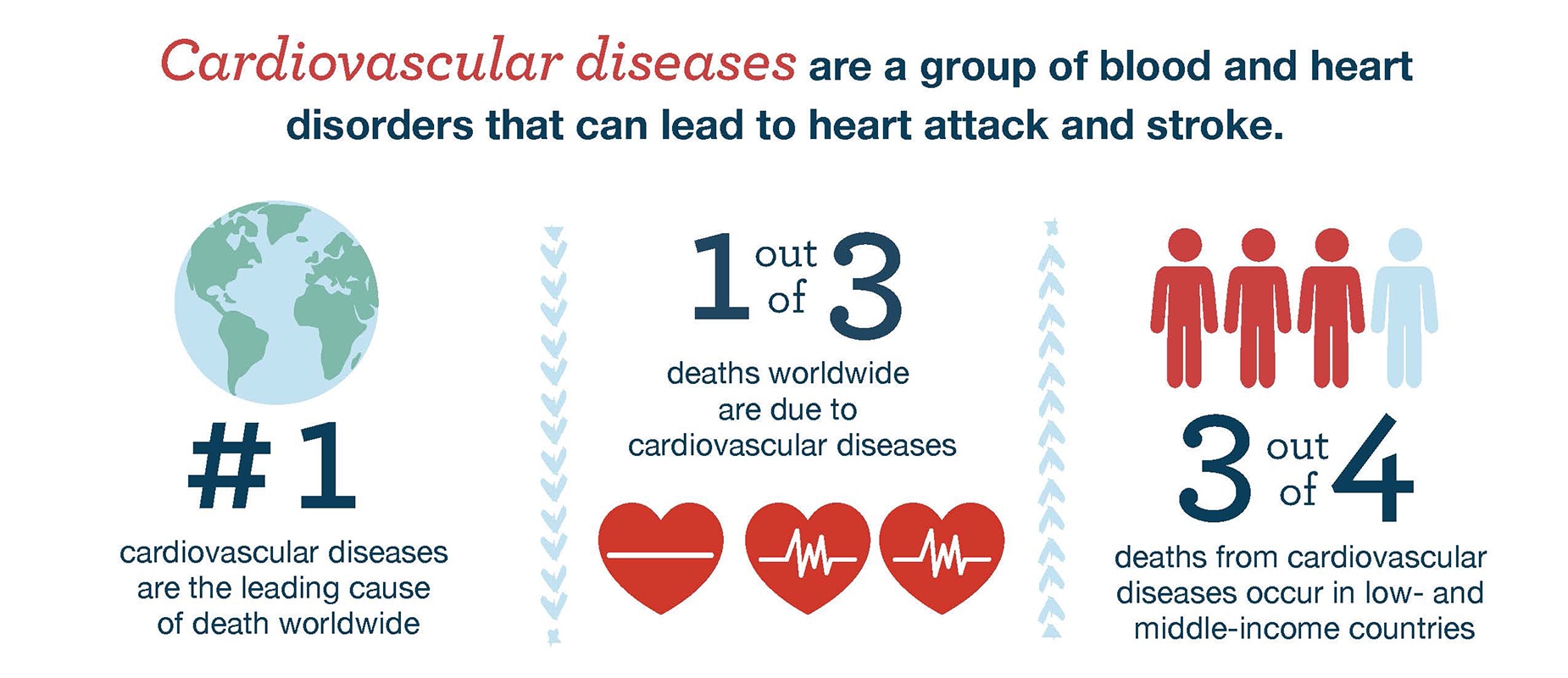Mentorship Builds Global Scientific Writing Capacity on Heart Disease
April 12, 2021

EAP participant and special section author Mandar Kannure's colleagues engage with providers in Mumbai during a hypertension control project (January 2019). Photo: Dr. Mandar Kannure
More than three-quarters (32 million) of deaths from global noncommunicable diseases (NCDs) occur in low- and middle-income countries, yet there is a shortage of published research led by authors from these areas due to limited resources. Increasing the number of peer-reviewed, published articles from local health researchers is critical to understanding the local burden of NCDs, informing public health planning and developing timely and effective interventions.

In 2019, CDC, in collaboration with Resolve to Save Lives, the Lancet Commission on Hypertension Group, and the World Hypertension League, launched an initiative to increase locally led research on cardiovascular disease — the leading cause of death worldwide — and associated risk factors. Increasing scientific writing and publication capacity among local public health practitioners allows their work on cardiovascular disease prevention and management to have greater impact locally and globally.
With the initial program launch, over twenty early and mid-career public health trainees and practitioners from low- and middle-income countries received training on scientific writing followed by one-on-one mentorship from global cardiovascular disease experts. Participants gained knowledge in scientific writingexternal icon and journal submission. Guidance and support continued after the workshop through publication of their manuscripts.
“This was my first experience with scientific writing and manuscript publication in my 11-year public health career,” explains Ashish Krishna, a cardiovascular disease health consultant from India and special section author. “Unlike many other programs I participated in in the past, during this mentorship process I received support throughout the manuscript development process until it was published.”
Emerging Authors Programme – building research publication capacity in low- and middle-income countriesexternal icon. The Journal of Human Hypertension is proud to present a special collection of publications from researchers in LMICs that highlight valuable findings and broaden the global evidence base on CVD prevention and control. We hope you enjoy this collection of informative publications.
Authors from the Americas, Eurasia, India, Pakistan, and Thailand shared findings from local hypertension control, trans-fat, and sodium reduction initiatives. The close mentorship from experts and the dedication of participants led to the publication of thirteen peer-reviewed articlesexternal icon across two special sections in the Journal of Clinical Hypertension.
For many authors, this experience provided a supportive space for collaboration. Juntima Photi, a researcher and special section author from Thailand remarks, “The program provided me the opportunity to improve my scientific writing and quality of work. As a result of the close and helpful guidance of the mentors, my work was published in the special section and can now have far-reaching impact.”
The collaboration between organizations, mentors, and participants did not end with the two special sections. In late January 2021, the program’s organizers announced a call for applications for the next cycle of participants, under the banner of Emerging Authors Program for Global Cardiovascular Disease Research.
“It’s our hope,” expressed Dr. Qaiser Mukhtar of CDC’s Global Noncommunicable Diseases group, “that participation in the mentorship program will help create a global community of cardiovascular health researchers who continue to collaborate, learn from each other, and pass their knowledge forward to continue to build capacity in a sustainable way.”
The mentorship program helps local public health practitioners share their research on cardiovascular disease prevention and management, leading to the developing of effective public health programs and policies, and ultimately reducing risk and saving lives.
This work is supported, in part, by Bloomberg Philanthropies and Resolve to Save Lives, an initiative of Vital Strategies, through a grant to the National Foundation for the Centers for Disease Control and Prevention Inc (CDC Foundation).